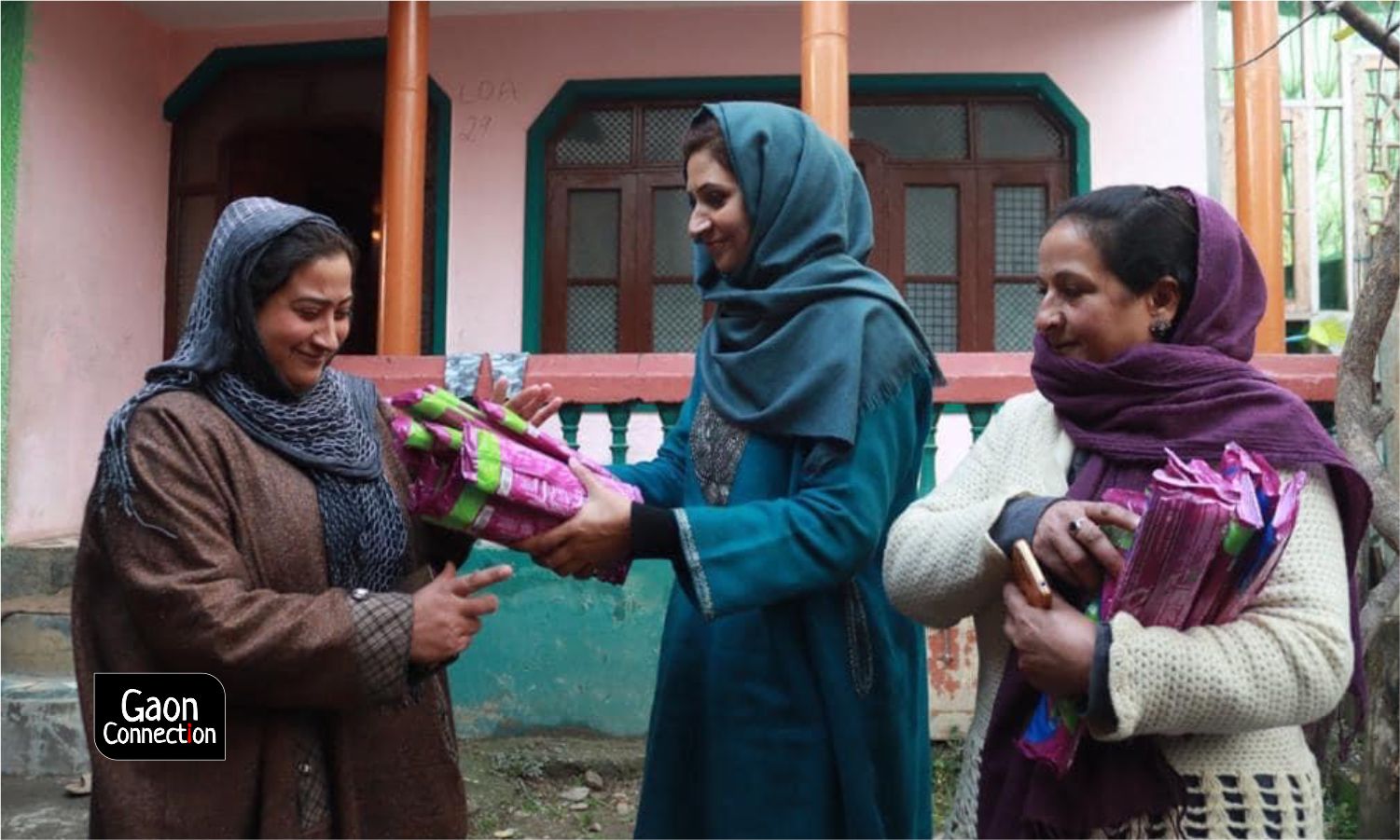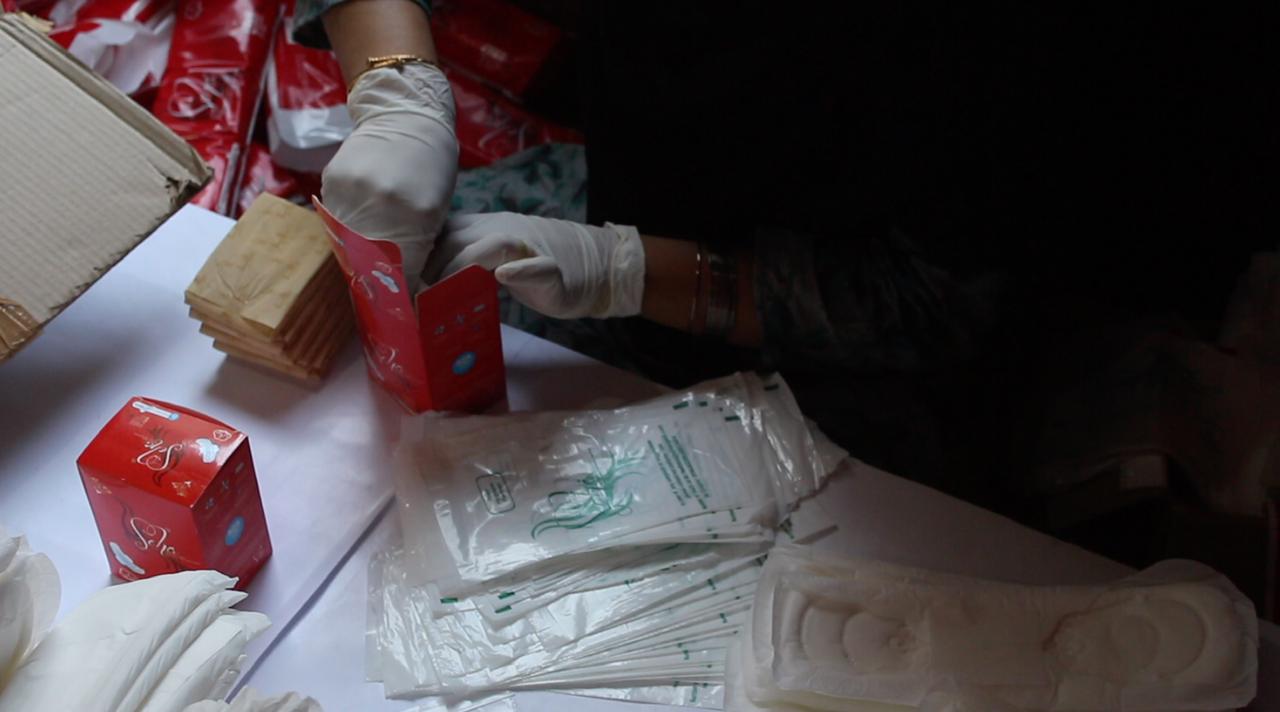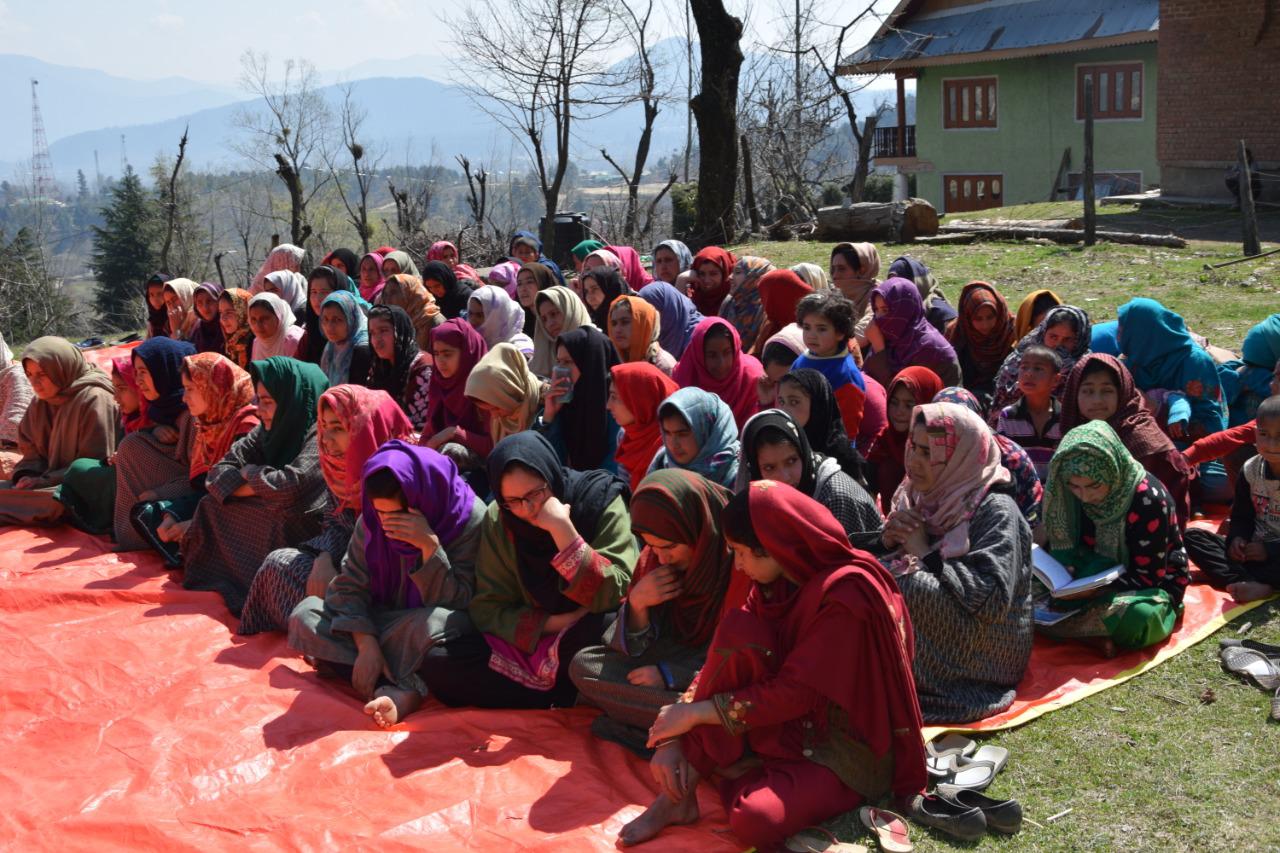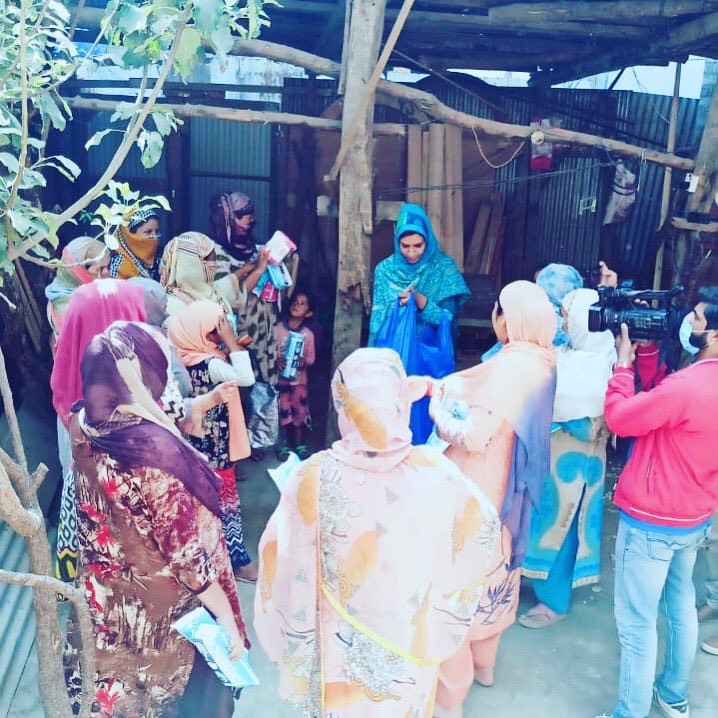Menstrual Hygiene: Two young people from Srinagar in Jammu & Kashmir help underprivileged women access sanitary pads
An employee of the Srinagar Municipal Corporation, and an engineer from Srinagar make sanitary napkins accessible to the poor and underprivileged women in Kashmir.


Photo: By arrangement
Srinagar, J&K
Menstruation is still not spoken of openly in the Kashmir valley. It is something mothers and daughters may talk in hushed tones at home, but women’s health and problems are rarely a topic for discussion even in schools and colleges.
But, a 28-year-old civil engineer from Rawalpora in Srinagar, brushed all that aside and established an organic and eco-friendly sanitary pad unit to promote safety alongside menstrual hygiene for women in the valley. Within a period of one year he has become a successful entrepreneur.
Peerzada Aaqib Nazar completed his B Tech from Chandigarh, in 2016 and joined a multinational corporation in Dubai as a civil engineer. In April 2019 he returned to Kashmir and invested Rs 30 lakh in his eco-friendly sanitary pad packaging unit.
“It was during a casual conversation with a gynaecologist on a flight back home from Dubai that I learnt that the companies were using plastics and toxic chemicals in the sanitary napkins, which is one of the biggest reasons for cervical and ovarian cancer in Kashmir,” Nazar told Gaon Connection.
Nazar was concerned enough to import eco-friendly organic pads from different countries and sell them under his brand name ‘Seha’ (an Arabic word for health). These napkins are a hundred per cent cotton and organic. “I am offering six pads for forty-five rupees which is affordable for girls from poor and rural areas,” said Nazar. Each organic sanitary napkin is priced quite high, but because he ordered in bulk, he managed to source them at a fairly reasonable price, which allowed him to keep a small margin of profit, he explained.

“Seha sanitary napkins are made of cotton and bamboo pulp and are plastic free,” explained Nazar. They are completely organic and he has the proper documentation for it. The cotton allows the skin to breathe and is comfortable. Importantly the material contains no bleach or any other chemicals that could cause cervical cancer or other distress to the women, he said.
He set up a unit in Srinagar to package the organic, imported sanitary pads. Currently eight employees are working with him. “My team packs around 1,000 boxes of napkins a day in a clean and hygienic way,” he said, adding that the brand was available across Srinagar and other districts and were also supplied to other parts of the country. During COVID-19 he supplied 700 boxes of sanitary napkins to female quarantined students in Srinagar district. Each box has six napkins.
According to Nazar, there is no provision for biomedical waste disposal in Kashmir, and menstrual waste is dumped indiscriminately, raising the concerns of health experts over environmental hazards. Seha napkins were biodegradable and would decompose within 90 to 180 days, he added. Spreading awareness and access to a biodegradable sanitary pad, Nazar hopes, will mitigate this problem.
Nazar is also working on a mobile phone App to help women keep track of their monthly cycles. “This app will help women keep track of their monthly cycles so that they can be well prepared,” he said. “The need of the hour is to remove shame which has been associated with women’s period, childbirth, etc.” he added.

Reaching out
Kashmir valley is in the grip of biting cold but 29-year-old Irfana Zargar is outdoors delivering free sanitary napkins to underprivileged women. When she lost her father seven years ago, she wanted to do something humanitarian as a tribute to him and began distributing sanitary pads to women in Srinagar and adjoining areas, who were poor.
Zargar is from Nowshera in Srinagar, in the union territory of Jammu and Kashmir, and has come to be known as the padwoman of Kashmir. In the past six months she has supplied 17 sanitary kits in 12 public toilets in Srinagar.
These contain sanitary pads, undergarments, sanitisers, hand washes, cloth pads, biodegradable pads, diapers and wet wipes that she buys and assembles into the kit. The cost of each kit is Rs 300. Zargar’s initiative is called ‘Eva Safety Door’. “‘Eva’ means ‘women’ and ‘safety door’ refers to the fact that this is a door that opens to their safety,” she explained.
According to Zargar, she has funded her project herself and with no help from any non-profit. “I am paying from my own pocket despite being a low-paid contractual employee at the Srinagar Municipal Corporation,” Zargar told Gaon Connection. Zargar said she chose to do this as, while there were many who helped the underprivileged with money, food and clothing, hardly anyone thought of sanitary napkins for the needy women. She felt only a woman would understand another woman’s personal needs. She said nearly 50 per cent of what she earned went towards this cause.

During the COVID-19, many single mothers, widows and handicapped women with meager or no source of income, approached her to get sanitary napkins. “Their financial problems doubled due to the COVID lockdown as for many of them, their sources of income stopped,” said Zargar. The women continue to visit her home to pick up the napkins, she added. Zargar admitted that during the lockdown, when the markets were shut and she did not get her salary on time, it was a struggle to continue with her mission, but she did so, but less actively.
Zargar has created accounts on Facebook, twitter, whatsapp and had an email id where women could get in touch with her. She said she got most of the requests there. And, she visits people in their places of work or homes to deliver the napkins.
It is estimated that around 120 million menstruating adolescents in India experience menstrual dysfunctions that affect their normal daily chores. But only 36 per cent of its 355 million menstruating females use napkins. According to a report by the nonprofit Dasra, every year, 23 million girls stop going to school as soon as they start menstruating.

